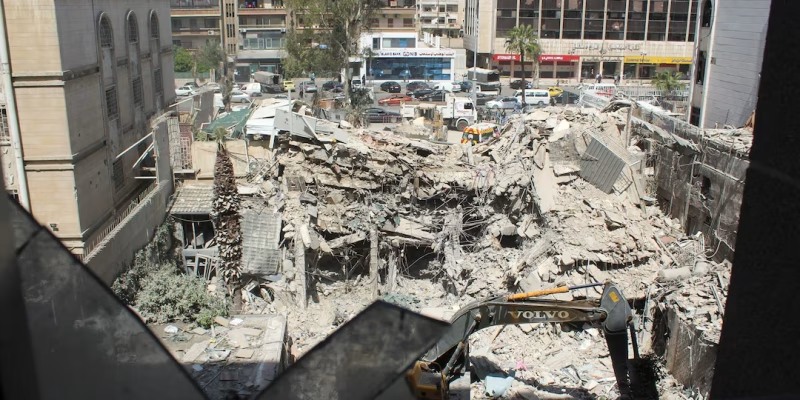Reuters
Israel on Friday braced for an attack by Iran or its proxies as warnings grew of retaliation for the killing last week of a senior officer in Iran’s embassy in Damascus.
Countries including India, France, Poland and Russia have warned their citizens against travel to the region, already on edge over the war in Gaza, now in its seventh month.
White House National Security Council spokesman John Kirby said the threat from Iran was real and viable.
The Israeli military said it had not issued fresh instructions to civilians but asked people to remain vigilant.
“Over the past day, the military has conducted a situational assessment and approved plans for a range of scenarios following reports and statements on an Iranian attack,” chief military spokesman Daniel Hagari said in a televised statement on Friday.
Israel’s foreign ministry did not comment on reports that some Israeli diplomatic missions had been partially evacuated and security stepped up.
“The revenge will come,” wrote Israel’s largest daily newspaper, Yedioth Ahronoth. “For the moment, the premise is that it will be very soon, in the next few days.”
Israel did not claim responsibility for the airstrike on April 1 that killed Brigadier General Mohammad Reza Zahedi, a senior commander in the Iranian Revolutionary Guard Corps’ overseas Quds Force, and six other officers as they attended a meeting in the Damascus embassy compound.
But Iran’s supreme leader, Ayatollah Ali Khamenei, said Israel “must be punished and shall be” for an operation he said was equivalent to an attack on Iranian soil.
“It’s going to be very difficult for Iran not to retaliate,” said Raz Zimmt, senior researcher at Israel’s Institute for National Security Studies.
“I still believe that Iran doesn’t want to engage in full-scale, direct military confrontation against Israel, and certainly not with the United States. But it has to do something.”
On Friday, both Israeli Defence Minister Yoav Gallant and army chief General Herzi Halevi had meetings with the visiting head of U.S. Central Command General Michael Kurilla to coordinate a possible response.
Iranian sources and diplomats from the United States, Israel’s main protector, say Tehran has signalled to Washington that it wishes to avoid escalation and will not act hastily.
But the risk remains that any response might spin out of control.
Since Iran viewed the embassy attack as equivalent to an attack on its own territory, Zimmt said a direct attack on Israeli soil by Iran itself rather than a proxy such as Hezbollah in Lebanon was a real possibility.
Iran has missiles capable of hitting Israel directly and in recent weeks, Israel has bolstered its air defences, which have intercepted thousands of rockets fired by Hamas from Gaza and by Hezbollah from Lebanon.
The Israeli military has called back reservists in preparation for any escalation along its northern border, where it exchanges fire almost daily with Hezbollah.
Late on Friday, it said around 40 rocket launches were identified crossing into Israel from Lebanon, most of which were intercepted with the remainder falling on open ground without causing any injuries.
The army has pulled most of its troops and armoured vehicles out of Gaza. Ministers said the move was in advance of a long-promised assault on the city of Rafah, where thousands of Hamas fighters are believed to be dug in beside more than a million Palestinians displaced from other parts of Gaza.
In Israel, although there have been no formal security instructions, some parents said their children had been told to take books home for the Passover school holidays in preparation for possible lesson disruptions.








Comments